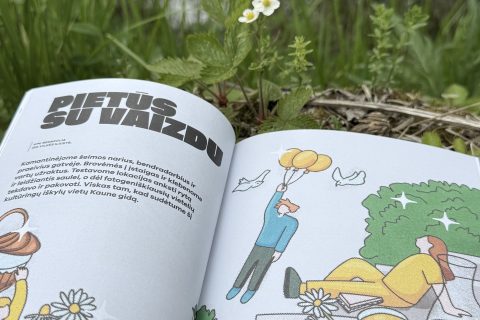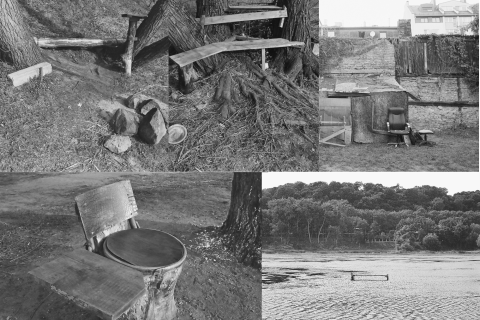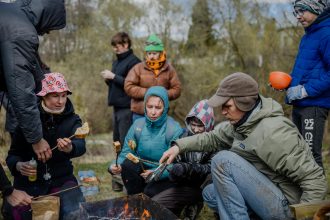There are people who are afraid of getting older. Apparently, I live quite a different life, because so far, after a little more than 30 years of walking on Lithuanian soil, it seems that the older I get, the better it gets. More wisdom, more understanding, maybe slightly slower physical recovery, but overall – I’d rather be older than younger. And after meetings like this one, I’m reminded once again that I’ve always found older people more interesting.
This time, the photographer and I start our Monday morning on the way to the monastery to meet a group of older but incredibly cheerful Kaunas residents: Akademija 60+ (60+ Academy). We were brought here by Povilas Venta Kuprys, who has already been interviewed in the magazine. We meet next to the Aleksotas funicular and walk across tiny bridges to the House Sisters of the Immaculate Conception of the Virgin Mary and the Sacred Heart of Jesus.
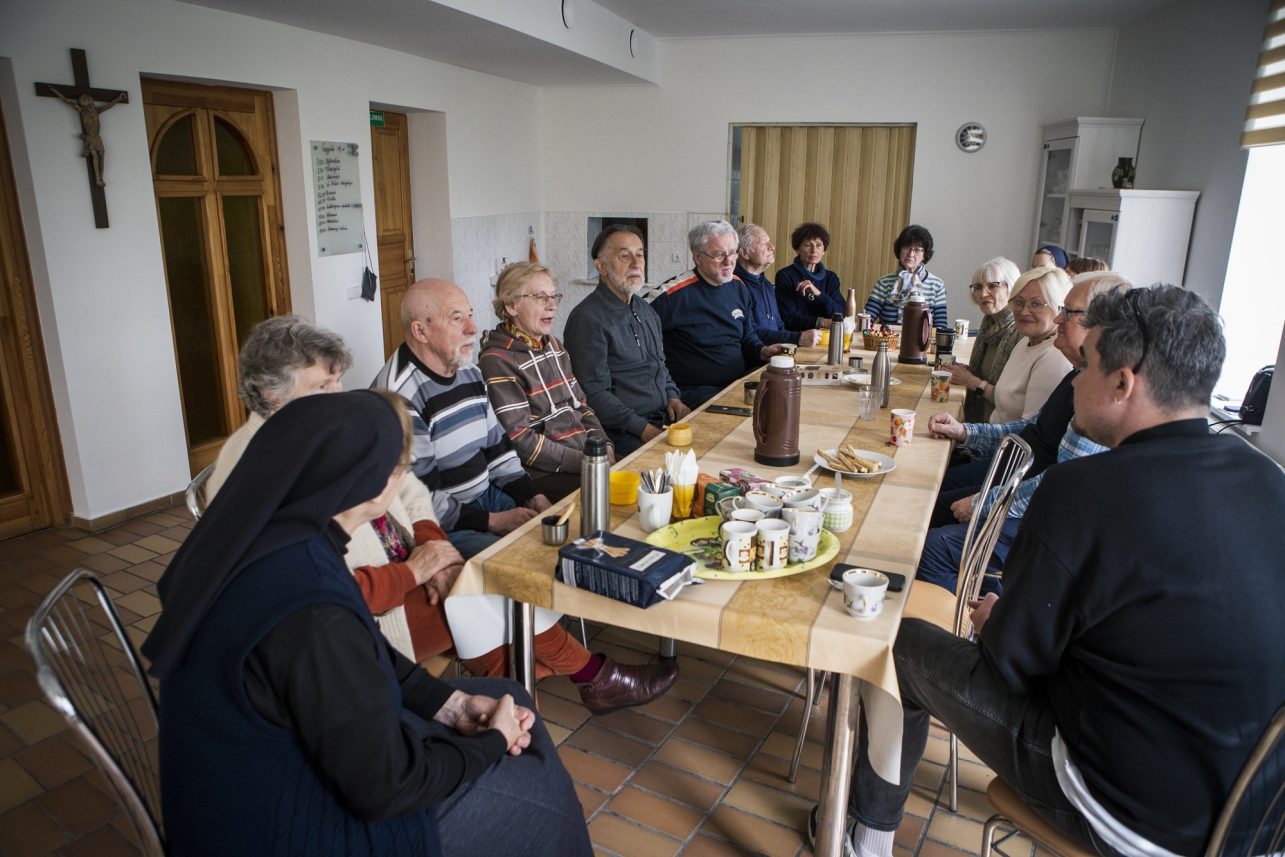
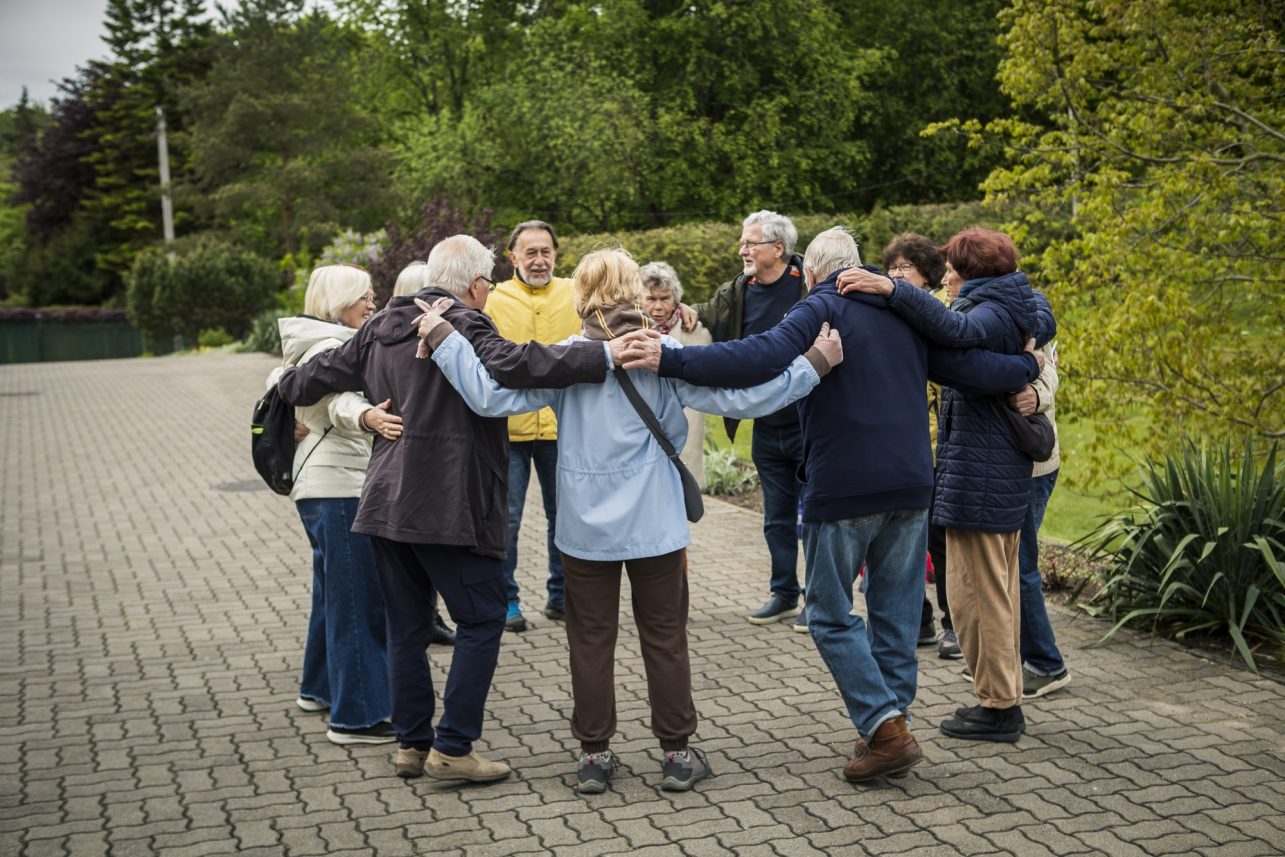
Picnicking without holidays
Every Monday, without breaks. Usually in nature, or rather – in the VMU Botanical Garden, but not necessarily. And we just happened to stumble on that “not necessarily” day: we are walking along the slope of Linksmadvaris, on a newly restored path I’ve never taken before. I always thought that, if nothing else, I knew this city inside out, yet it still manages to surprise me. I’m also surprised that on the way we pass Maironis’ villa: how could I not have known? Hello? Didn’t Maironis live near the Town Hall?
The health-conscious initiative of Kaunas residents, Akademija 60+, has been operating in this manner for five years. For four of these years, “until we finished our bachelor’s degree,” it was led by the aforementioned Povilas – a well-known public figure in Kaunas, teacher, poet, and writer. Now he has handed over the “rector’s” chair to others: each conversation or outing is organized by a different pair of academy’s activists.
The weather won’t get in the way
Does the bad Lithuanian weather get in the way of their meeting? Unlike me, these people are not afraid of rain or cold. While sipping tea, someone recalls that one Monday there was a severe snowstorm, only a few people showed up, but two members of the academy still sat down to enjoy their tea, even as snow was covering everything with white blankets. It’s worth noting that tea is especially important in this group; we’ll return to that point later, as I had never tasted tea quite like this before.
Being outdoors is one of the core activities of this organization. Clearly, these people are not intimidated by physical activity: everyone was wearing hiking boots. In addition, quite a few participants arrived on pedal-powered means of transportation.
Here I must reflect retrospectively. Do you remember how, when we were kids and Nida was still a colony of German tourists rather than nouveau riche Lithuanians, the stereotype of a Germanic senior was formed? We used to compare them to our elders: we were drawn to their clean, modern athletic clothing, comfortable hiking footwear, smoother facial skin, and the smart devices in their hands. I remembered that image as soon as I arrived here because now, we are Germany too. And that’s a good thing. It seems most people showed up well-groomed, not forgetting their perfume either.
Attitudes, principles, and traditions
Every organization has its own rules. And although this one is fairly informal, with meetings being optional and voluntary, everything is clearly defined, you can even see that online. For the inaugural meeting, a set of activities, internal rules, provisions, and principles were prepared. I have no doubt that this was largely due to the contributions of the aforementioned Povilas: he worked for many years not only in the education system but also in the administration of the city of Kaunas.
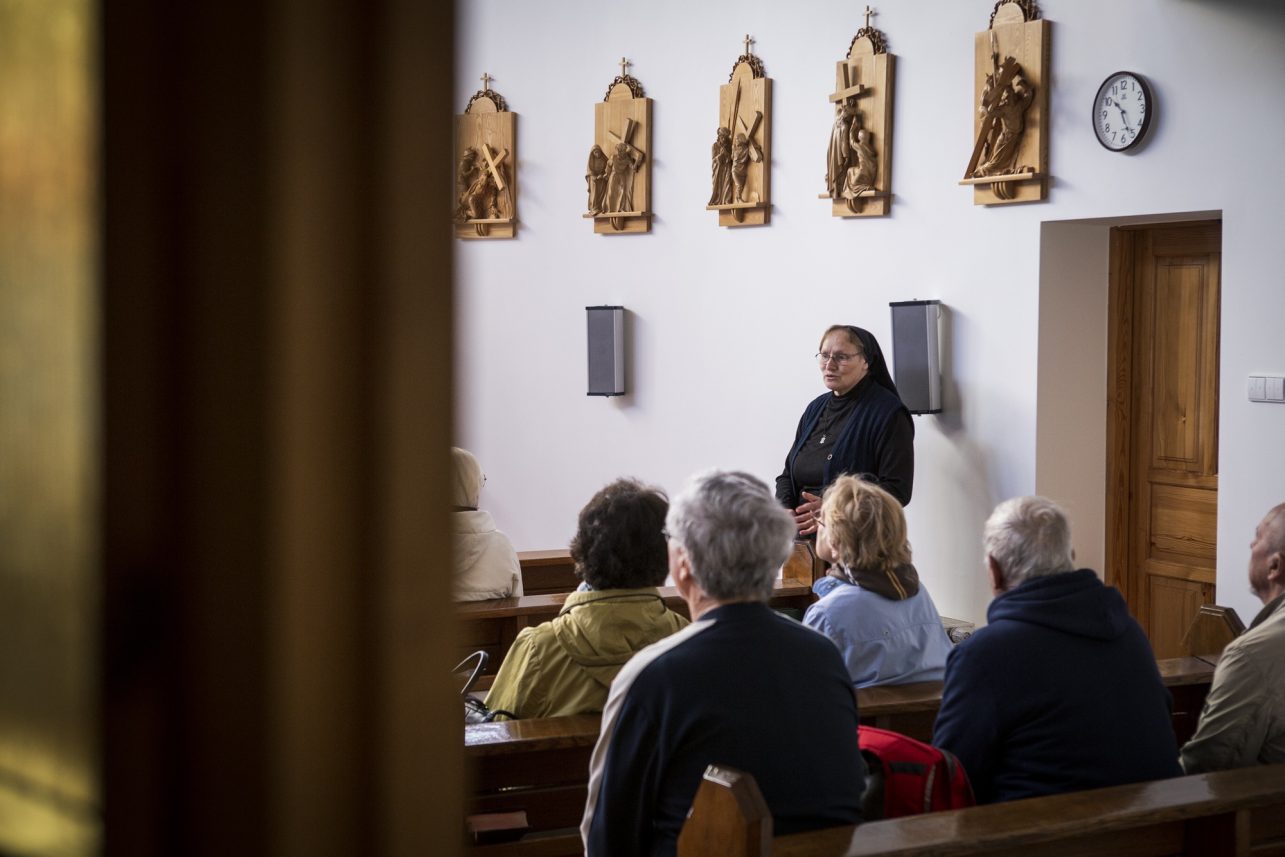
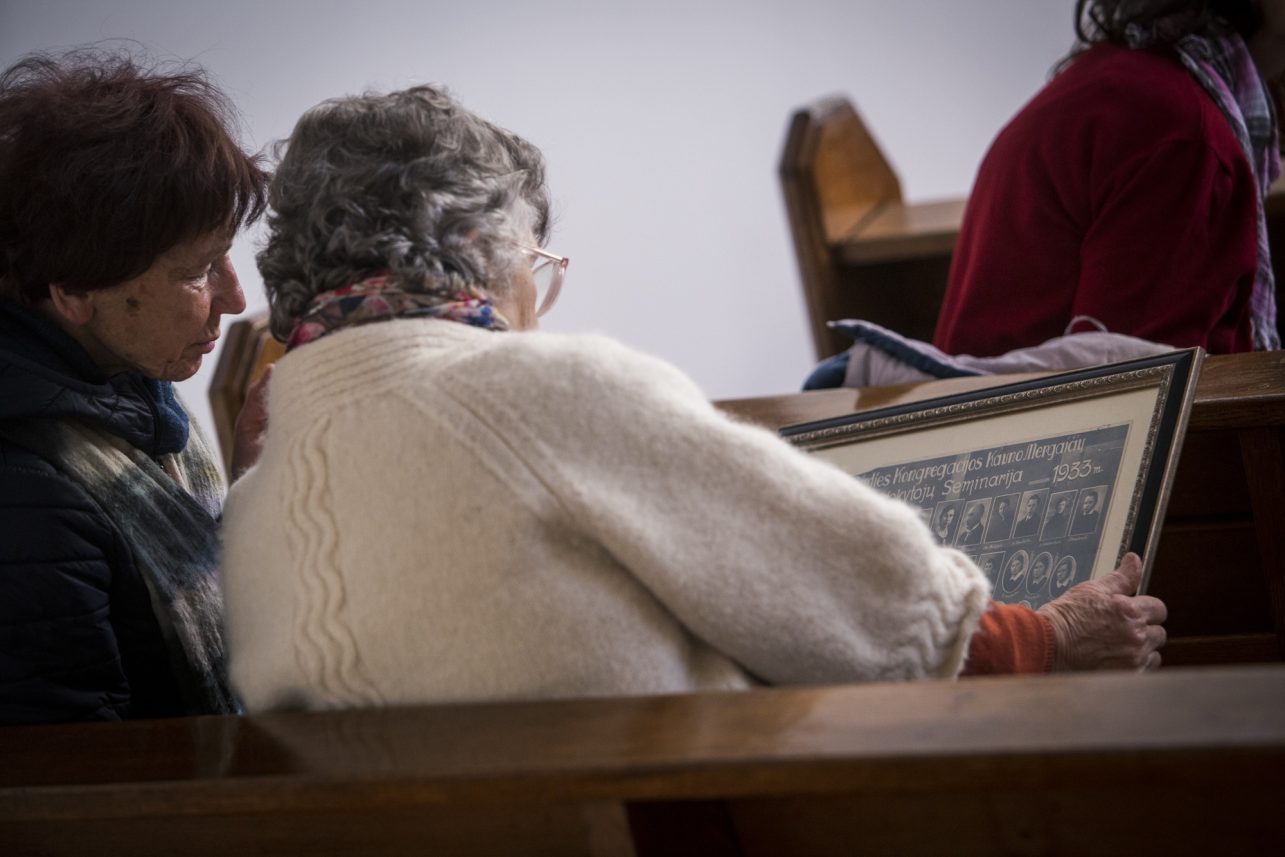
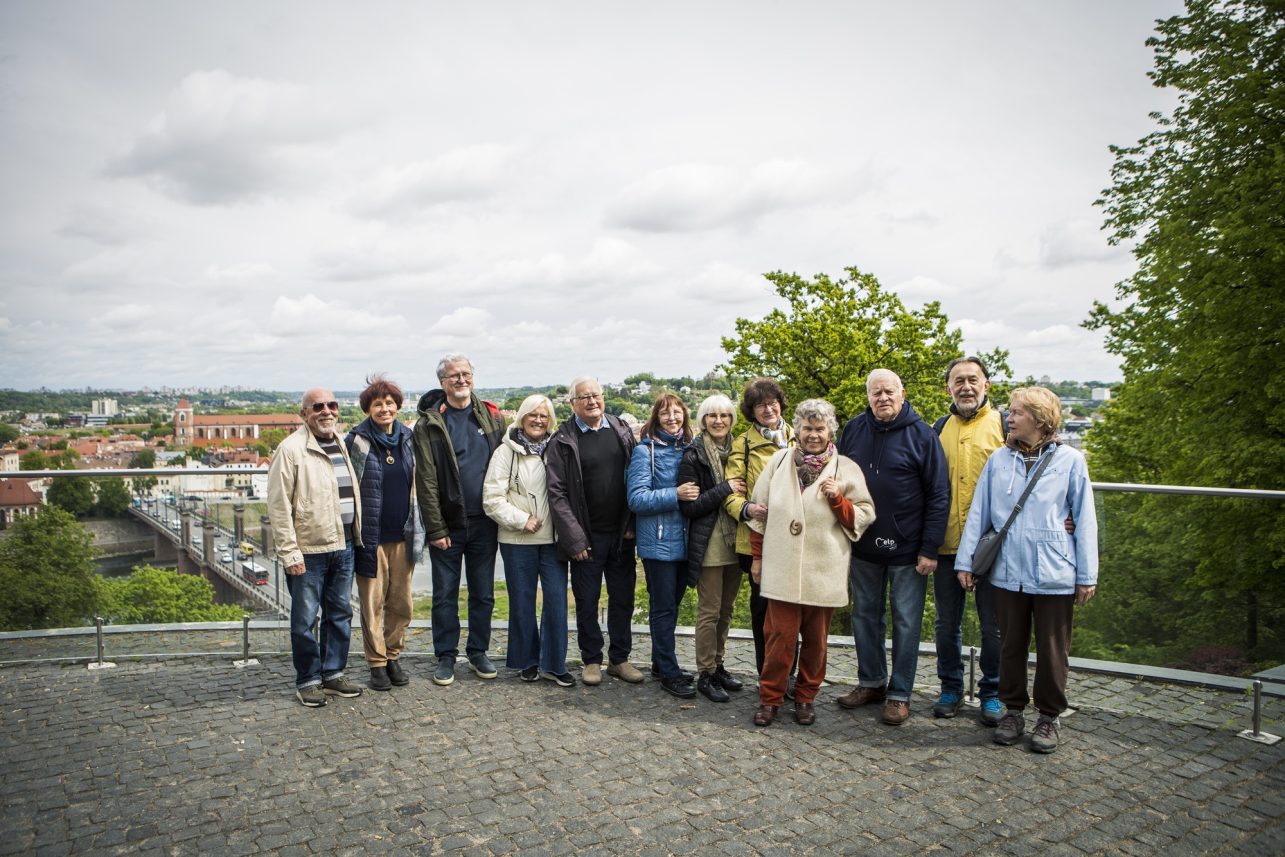
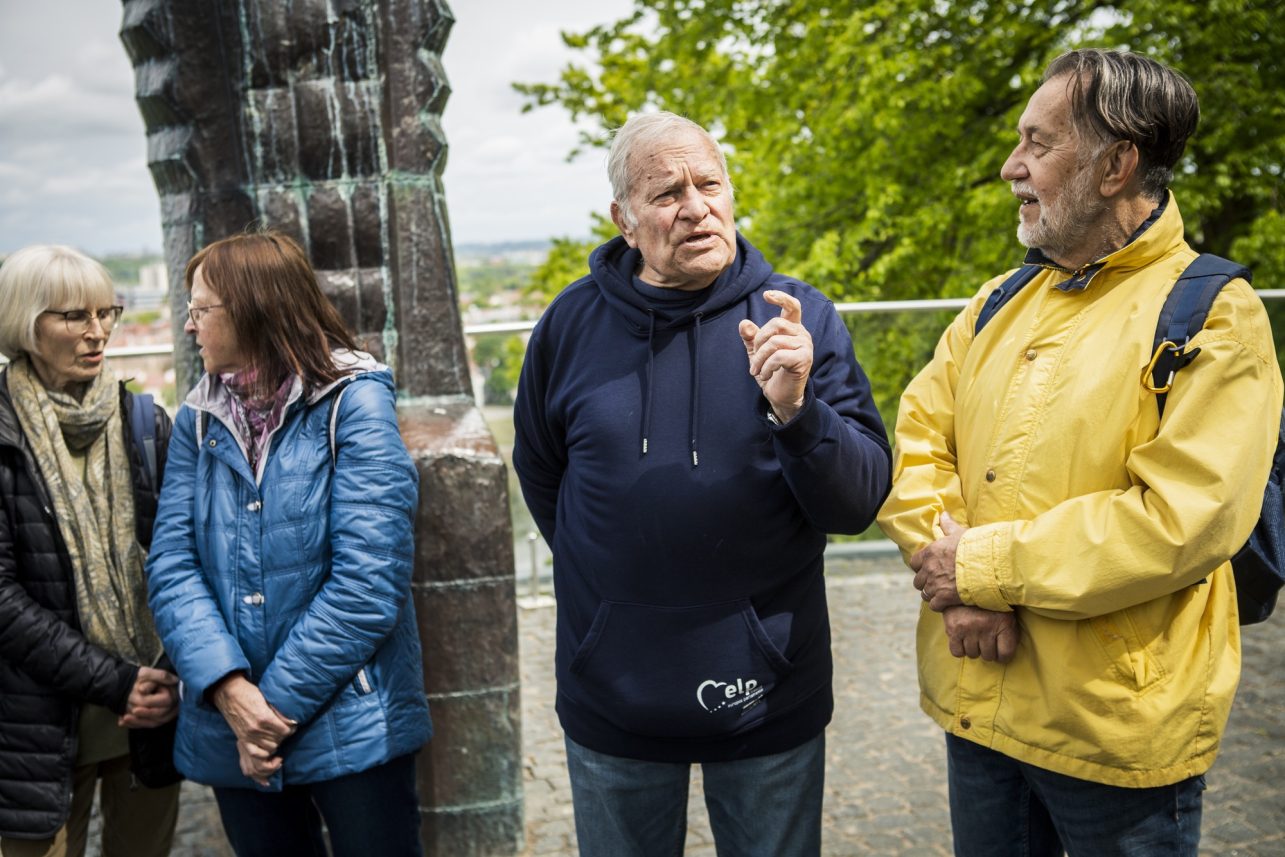
Akademija 60+ unites older adults who aim to stay energetic, healthy, and emotionally strong. Activities include sharing wellness knowledge, moderate and purposeful physical movement, developing intellectual abilities, spending time in nature, and other self-development methods recognized worldwide. The goal is to strengthen both body and mind, maintain joy of life, and reduce dependence on family or society. As they said, they avoid both alcohol and sweets. However, everyone brings their own tea.
It’s clear that tea here is a kind of ritual. Was it very tasty? I had the chance to refresh myself with a cup from Mr. Povilas’s thermos, and I must admit, the taste was… definitely healthy. I’ve never tasted anything more bitter in my life. I could feel that it was definitely good for me, but I have to admit I was thirsty for the rest of the day. Still – I’d drink it again. Whatever it was.
If there’s no picnic, then an excursion or a lecture
As I mentioned, our destination was the House of the Sisters of the Immaculate Conception of the Virgin Mary and the Sacred Heart of Jesus. The history of this congregation dates back a century and is associated with a well-known name: the Blessed Jurgis Matulaitis. Interestingly, some of these sisters are still active in North America: due to historical circumstances, some of them moved across the ocean, yet tradition and devotion remain strong.
The congregation of the Sisters of the Immaculate Conception of the Virgin Mary has been operating in Kaunas since the beginning of the 20th century. The House of the Sacred Heart of Jesus in Kaunas is a place of spiritual renewal, support, and prayer, where the sisters work to nurture faith, provide assistance, and spread Christian love. They tend to a beautiful garden on Amerikos Lietuvių Street, which, interestingly, is situated atop a military rampart. I didn’t know that, but I like it.
We listen to stories shared by Sisters Onutė and Teresėlė, visit the chapel, sit down in the dining hall, and enjoy some cookies. The sisters vividly recall even the smallest details from the community’s history in the early 20th century, during the Soviet era, and beyond. They were actively involved in the care and education of orphaned children and youth. Most of them worked as teachers as that was their training.
We also visit the impressive nearby villa, which houses the sisters’ library where knowledge has been accumulated since the early 20th century. Part of the building, it seems, also became a refuge for those in need after the large-scale invasion of Ukraine by the Russian aggressors in 2022. So, the sisters continue to help, educate, read, and live ascetically. But, as they themselves say, sadly, their numbers are dwindling – it’s disheartening that Christian values no longer reach young people, primarily due to a lack of guidance from their families.
Volunteering is the core principle
I have volunteered a lot in my life. Many of those friendships have developed into various projects, job offers, and long-term friendships. The participants of the Academy also understand the importance of volunteering. Over a cup of tea, we share experiences that go beyond volunteering at Monday picnics to helping in the cultural sector.
Volunteering is the first and probably most important principle of Akademija 60+. One of the most vivid memories people have is participating in the opera Sun & Sea by Lina Lapelytė, Vaiva Grainytė, and Rugilė Barzdžiukaitė when it was performed in Kaunas. I was there myself, I watched it, and I even asked my partner, “I wonder where they found older volunteers?”
Other core principles identified by the participants include sharing experiences, self-development, and community – these are the foundations of Akademija 60+. Here, sources on healthy living are read, discussed, and interpreted; participants learn both theory and practice: from breathing exercises to meditation in nature. Members are guided by moderation, common sense and reliable sources. Openness is encouraged, experts are invited, and ideas can be proposed by anyone in the community.
Synergy and communion were perhaps the most emphasized aspects during our meeting. In the process of education and development, the participants of the Academy always rely on three essential elements: body, soul, and intellect. They are encouraged to move healthily and moderately, to discover new sources of happiness and inspiration, to develop creativity, and to cultivate the inner need to search, to know, to improve. As Povilas said, you are functioning well only when everyone else does too.
Want to join?
As I said goodbye to my new friends, I felt a bit sad that I was too young and couldn’t join such a great club. But maybe an exception could be made? They said it happens sometimes, but in general, the academy sticks to the rules established five years ago during the founding picnic at the VMU Botanical Garden.
To become a member of Academy 60+ you must be 60 years old or older. A candidate must have a minimum level of physical fitness – being able to walk or cycle for at least 30 minutes two to three times a week, or reach that level within three months, as it’s necessary for participating in the program (exceptions apply to people with disabilities). You must join the community with a certain attitude: first, it is about what you can give to others, and only then – what you can gain for yourself.
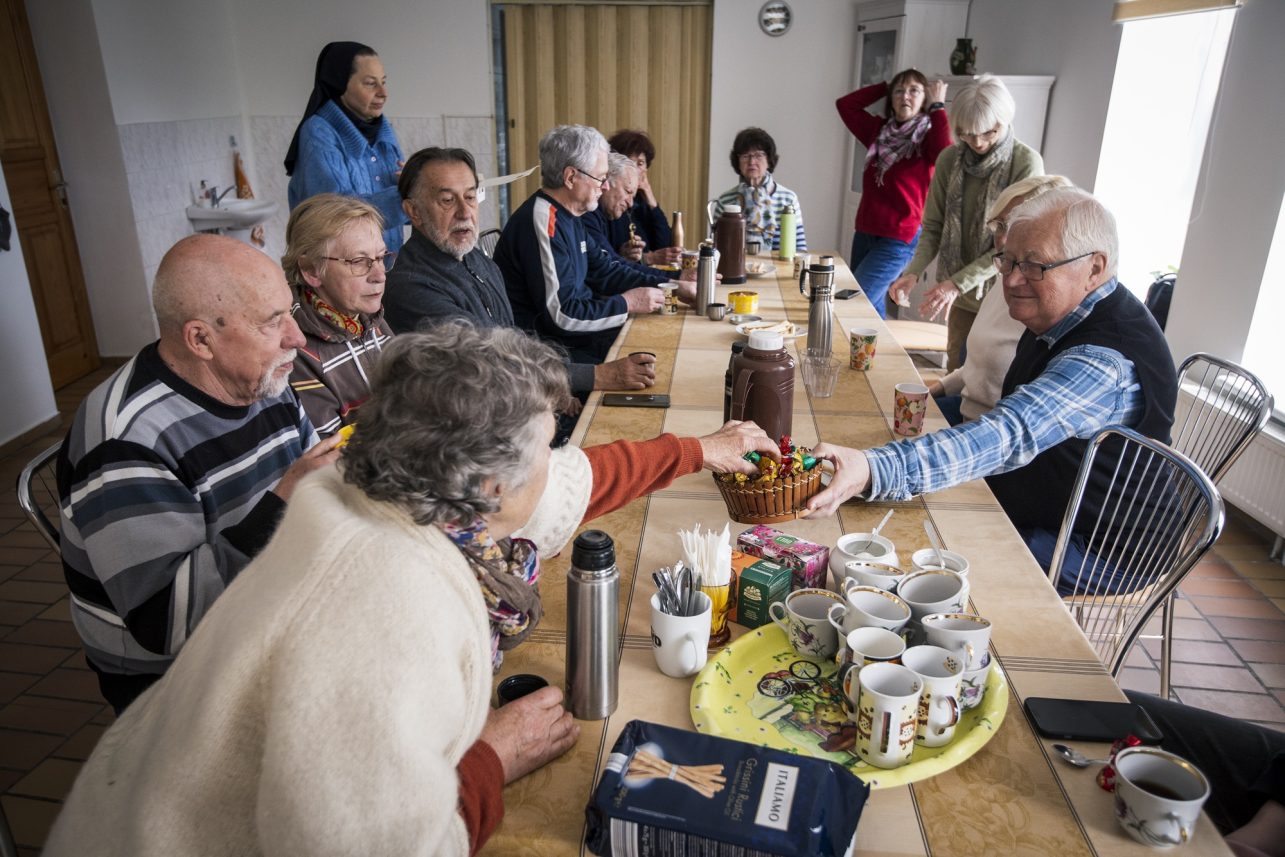
It is emphasized that everyone here takes responsibility for themselves. Also, a member must be able to use modern means of communication: a mobile phone, e-mail, or other remote communication program (relatives can also help). Although there are many rules, I believe that’s actually a good thing – it seems that the excellent leader Povilas has established a club that participants can no longer imagine their Mondays without.
And what did I learn from all this? That aging doesn’t scare me at all, on the contrary: I’ll have time to continue exploring my favorite city, which, it turns out, I don’t know as well as I thought. I’ll have time to meet interesting, educated, intelligent, and athletic people. Not to mention the amount of jokes I’ll hear from life-hardened engineers, teachers, educators, IT specialists, and other amazing people of Kaunas.

